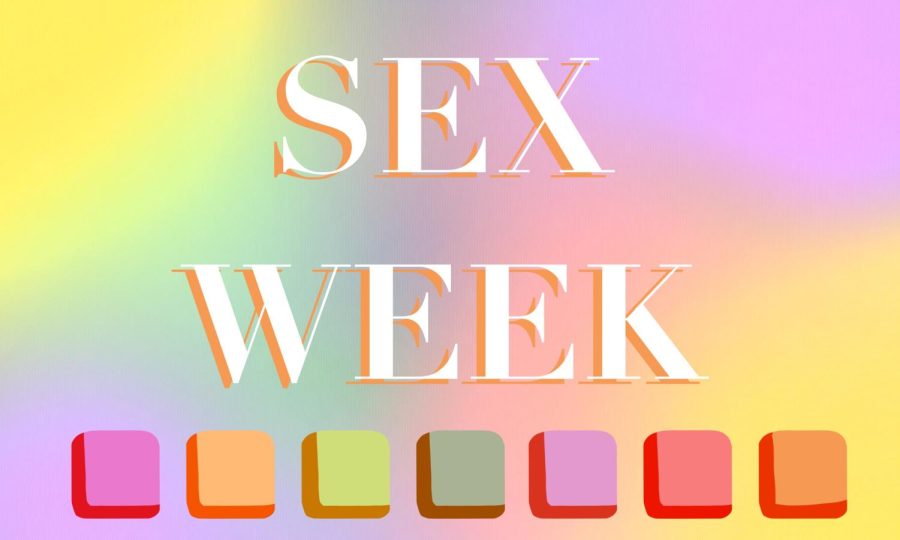Sex therapist Casey Tanner imagines more expansive sex education at NU Sex Week panel
This year’s NU Sex Week runs from May 9 to 13. On Thursday, speakers discussed disability justice and dismantling ableist systems with self-love.
May 11, 2022
You may want to throw out everything you know about sex.
As part of a Tuesday NU Sex Week event, licensed sex therapist Casey Tanner presented a discussion titled “Expansive Sexuality: Brave sexuality in a world that’s afraid of sex.”
They discussed how people learn about sex, the limitations of traditional sex education and more holistic ways of teaching and learning about sex. They said learning about sex should always center pleasure and joy.
“My work is based on my core belief, which is that we are all born expansive, and we are all born with the ability to fantasize and to play and to imagine,” Tanner said.
Everyone has an intrinsic sense of who they are and what they like, but the general public may shame, deny or neglect these preferences, they said.
Tanner asked participants to reflect on where they learned what they know about sex. Sex education goes beyond what is taught in schools, they said, and includes learning from friends, from text and videos on the internet and from observing family dynamics.
Tanner said most of the sex education they received focused on what could go wrong, like teenage pregnancy and sexually transmitted infections. A 2010 Centers for Disease Control and Prevention study on sex education for teenagers surveyed participants on whether their curriculum covered four categories — birth control, STDs, HIV/AIDS and saying no to sex.
“Although the impact of formal sex education on teenagers’ behavior is harder to assess and depends on its content, studies show it can be effective at reducing risk behaviors,” the study said.
Tanner said the emphasis on fear in sex education is “strange,” as most other classes are meant to inspire and encourage students to learn more.
The sex education most people recieve is isolating and alienating, Tanner added, excluding those with margnalized identities such as queer and trans people, people of color and people with disabilities. This can also affect the way health care professionals work with them, they said.
To heal, Tanner recommended looking at the origins of harm, understanding early educational experiences and introducing accurate information. They also recommended engaging with pleasure activism, which involves recognizing pleasure as a fundamental human right and reclaiming one’s own right to their pleasure, bodies and language.
Above all, Tanner emphasized that sex doesn’t have one specific defintion, and it’s open for whatever the individual wants it to be.
“It can be physical, or it can be emotional. It could be both,” Tanner said. “Maybe it’s romantic. Maybe it’s not. Maybe it involves a penis, or maybe it involves a strap-on. Maybe it involves penetration, maybe it never does … But whatever you want it to be, it can be. Nobody gets to tell you what sex is or isn’t as long as it’s consensual.”
Weinberg senior and Sex Week Organizer Karina Karbo-Wright also outlined the expectations for participants of Sex Week programming at the event, which include active consent and confidentiality.
“While consent is typically thought of in sexual situations, we can and should try to act with consent in mind for all of our actions,” a document distributed at the event read.
Active consent means consent is freely given, ongoing, informed, enthusiastic and specific, Karbo-Wright said.
NU Sex Week will host other events this Friday including a B.Burlesque workshop, a period sex trivia night and a panel discussion on crip sexuality and disability justice.
Email: [email protected]
Twitter: @yimingfuu
Related Stories:
— Community activist Da’Shaun Harrison preview upcoming book on anti-fatness as anti-Blackness


